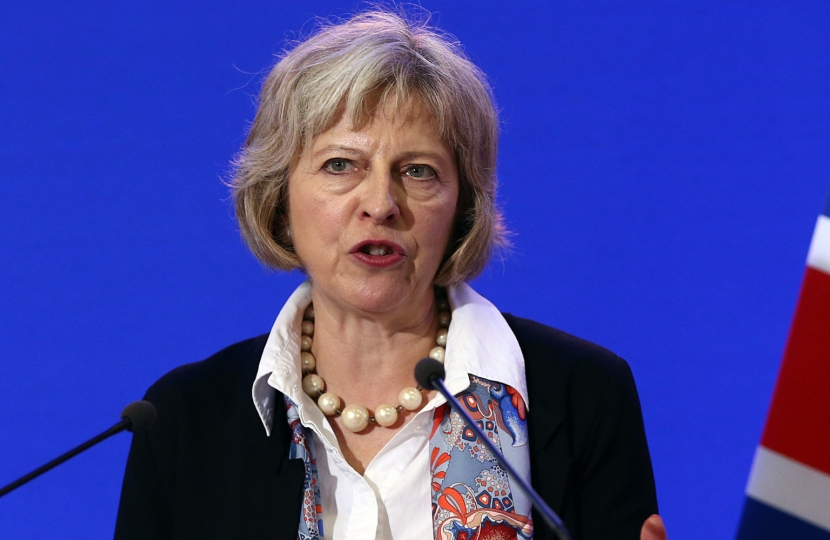Our plan for the economy means we can invest in a strong NHS
- Our plan for the economy means we can afford a strong NHS. We will increase funding for the NHS by £10 billion a year by 2020, of which £6 billion will be delivered by the end of 2016-17. The NHS budget will rise from £101 billion today to £120 billion by 2020-21 (HMT, Spending Review and Autumn Statement, 25 November 2015, link).
- We are hiring thousands more doctors, midwives and nurses to look after patients. Since 2010, There are already more than 10,000 more doctors and more than 10,600 additional nurses - meaning people can be confident they will be looked after properly (HSCIC, NHS Workforce Statistics, April 2016, link).
- We are reducing the number of managers – so money goes to the frontline where it is needed. There are now over 7,200 fewer managers in the NHS than under Labour (ibid.).
- Funding the £1.16 billion Cancer Drugs Fund. This has helped more than 84,000 people access the most pioneering, life-extending cancer drugs which would not otherwise been available to them and our reforms will ensure that the most promising and innovative medicines get to patients as quickly as possible (NHS England, 23 July 2015, link, Hansard, 2 December 2015, link).
Treating patients in cleaner, safer hospitals – with the dignity they deserve
- We are putting patients first by exposing poor care and improving patient safety. Our public inquiry into the Mid Staffs tragedy exposed systemic failings in the NHS. By making the CQC independent, putting in new ratings system and appointing a chief inspector for hospitals, GPs and social care we are helping to improve care (Department of Health, 1 October 2013, link; Hansard, 16 July 2014, Col. 863, link).
- We are respecting patients’ dignity, nearly eradicating mixed sex wards. The number of patients facing the indignity of mixed-sex wards has fallen from 11,802 in December 2010 – when we started measuring this – to 446 in the latest statistics in June 2016 (NHS England, Mixed-Sec Accommodation Data, July 2016, link).
- Hospital infections have been virtually halved since 2010. The level of MRSA has virtually halved, and C. difficile cases are down by more than 50 per cent (Public Health England, MRSA bacteraemia – Monthly Results, link; C. difficile infection (CDI) - Monthly Results, link).
Delivering a 7-day NHS
- Delivering a 7-day GP service by 2020. We are offering a new voluntary contract for GPs to deliver a 7-day service for all patients. This contract which will be better for GPs and for patients is funded from the £10 billion of additional investment in the NHS due to a strong economy. We are committing £750 million over the next three years to funding improvements in GP premises, technology and modern ways of working to support a fully 7-day health service (Department of Health, 4 October 2015, link).
- Ensuring there is a 7-day mental health service so people get the care they need. We are investing an extra £1 billion into mental healthcare by 2021 and placing mental health services in hospital emergency departments so people receive support 24 hours a day, 365 days a year we will ensure that psychiatric services are available in A&E (Department of Health, 15 February 2016, link).
- Bringing a 7-day service to hospitals. Around 6,000 people lose their lives every year as we don’t have a proper 7-day service in our hospitals. We are reforming consultant contracts to remove the opt-out from weekend working for newly qualified hospital doctors. A 7-day NHS will mean safer and more integrated care (Department of Health, 16 July 2015, link).
Health: Labour’s failures
Labour wasted money in the NHS.
- In government Labour ran the NHS inefficiently – wasting money that could have helped patients. Productivity in the NHS fell under Labour and they wasted £10 billion on an IT project that had to be scrapped. If Labour had managed similar productivity increases as we have, this would have been worth an extra £40 billion to the NHS (University of York, CHE Research Paper 94, 2014, link; PAC, The dismantled National Programme for IT in the NHS, 18 September 2013, link).
- The number of managers increased by 81 per cent under Labour. In 1999, there were 23,378 managers and senior managers in the NHS. By 2009, this had risen by 81 per cent to 42,509 (NHS Health & Social Care Information Centre, NHS Staff 1999-2009 overview, 25 March 2010, link).
- The total bill for NHS PFI contracts signed under Labour is more than £80 billion. Of this total, Labour only paid off £5.9 billion (seven per cent) whilst they were in power, They are costing the NHS nearly £2 billion per year in unitary charge payments (HMT, Private Finance Initiative Projects: 2014 summary data, 15 December 2014, link).
Labour failed to provide good patient care
- Labour ignored 81 requests for a full public inquiry into the Mid Staffs tragedy between January 2009 and May 2010. Between 1 January 2009 and 1 May 2010 the Department of Health’s ministerial correspondence unit received 20 letters from MPs, 36 from members of the public and 25 from organisations (Hansard, 13 February 2013, Col. 735W, link).
- Labour put political pressure on the hospital watchdog – meaning problems were not dealt with. Former CQC chair Baroness Young of Old Scone said ‘we were under more pressure...when Andy Burnham became minister.’ The country’s leading expert on hospital death rates, Professor Sir Brian Jarman said there was ‘political pressure’ for information about high death rates to be ignored (Barbara Young, Evidence to Mid Staffs Public Inquiry, 4 July 2011, p. 82 & p.130, link; ITV.com, 16 July 2013, link).
- Labour’s 48-hour GP appointment target meant that patients could not get the appointments they wanted. The 2010 GP patient survey said a quarter of patients who wanted to book an appointment more than two days in advance were unable to do so (Department of Health, GP patient Survey 2010, September 2010).


